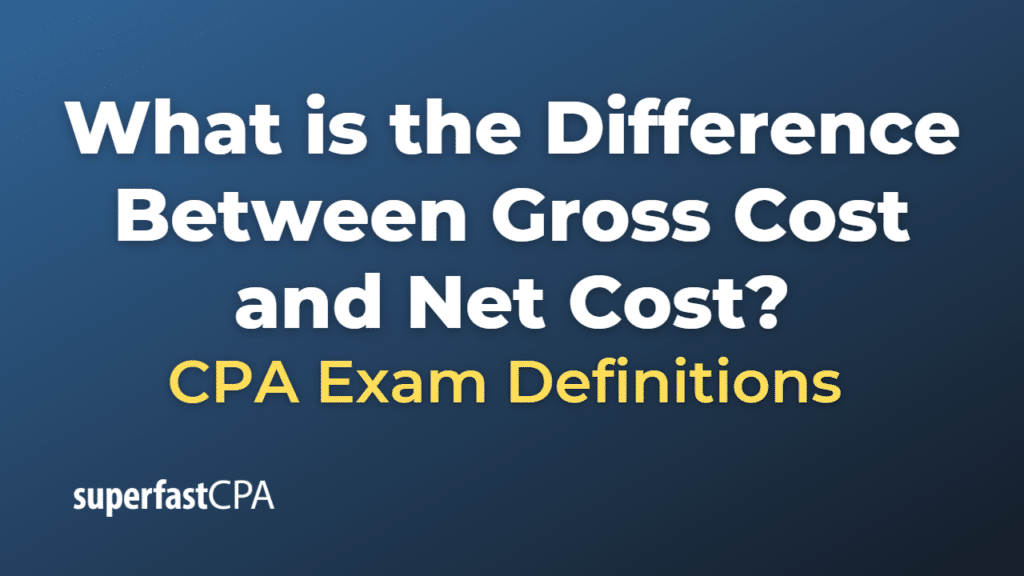Difference Between Gross Cost and Net Cost
Gross cost and net cost are both measures of the total cost of a good, service, or project, but they include different types of costs:
Gross Cost
Gross cost refers to the total cost incurred for producing a good or service without taking into account any discounts, rebates, or other cost reductions. It encompasses all of the expenses incurred in creating a product, including the cost of raw materials, labor, overhead, taxes, and other expenses.
Net Cost
Net cost is the actual cost of a good, service, or project after all discounts, rebates, and other cost reductions have been subtracted from the gross cost. It’s essentially what you really end up paying, taking into account these reductions.
Key Differences
- What they include: Gross cost includes all costs involved in producing a good or a service, while net cost includes all cost reductions such as discounts and rebates.
- Typical amount: Gross cost is typically a higher amount as it does not consider any discounts or rebates. Net cost is typically lower as it takes these discounts and rebates into account.
Understanding both gross cost and net cost can help in determining the actual profitability of a product, service, or project. It also allows for more accurate budgeting and forecasting.
Example of the Difference Between Gross Cost and Net Cost
let’s use the example of a company purchasing raw materials from a supplier:
Example
- Gross Cost: Suppose a manufacturing company needs to purchase raw materials to produce its product. The supplier charges $5,000 for the raw materials. This amount, $5,000, is the gross cost of the raw materials. It represents the initial, total cost without taking into account any cost reductions.
- Net Cost: Now, suppose the supplier offers the company a 10% discount on the raw materials, which equals $500. This discount reduces the total cost of the raw materials.To calculate the net cost, we subtract the discount from the gross cost:Net Cost = Gross Cost – Discount Net Cost = $5,000 – $500 Net Cost = $4,500
So, while the gross cost of the raw materials is $5,000, the net cost to the company after considering the discount is $4,500.
In this way, understanding the difference between gross cost and net cost allows a business to calculate its actual costs and potential savings.













